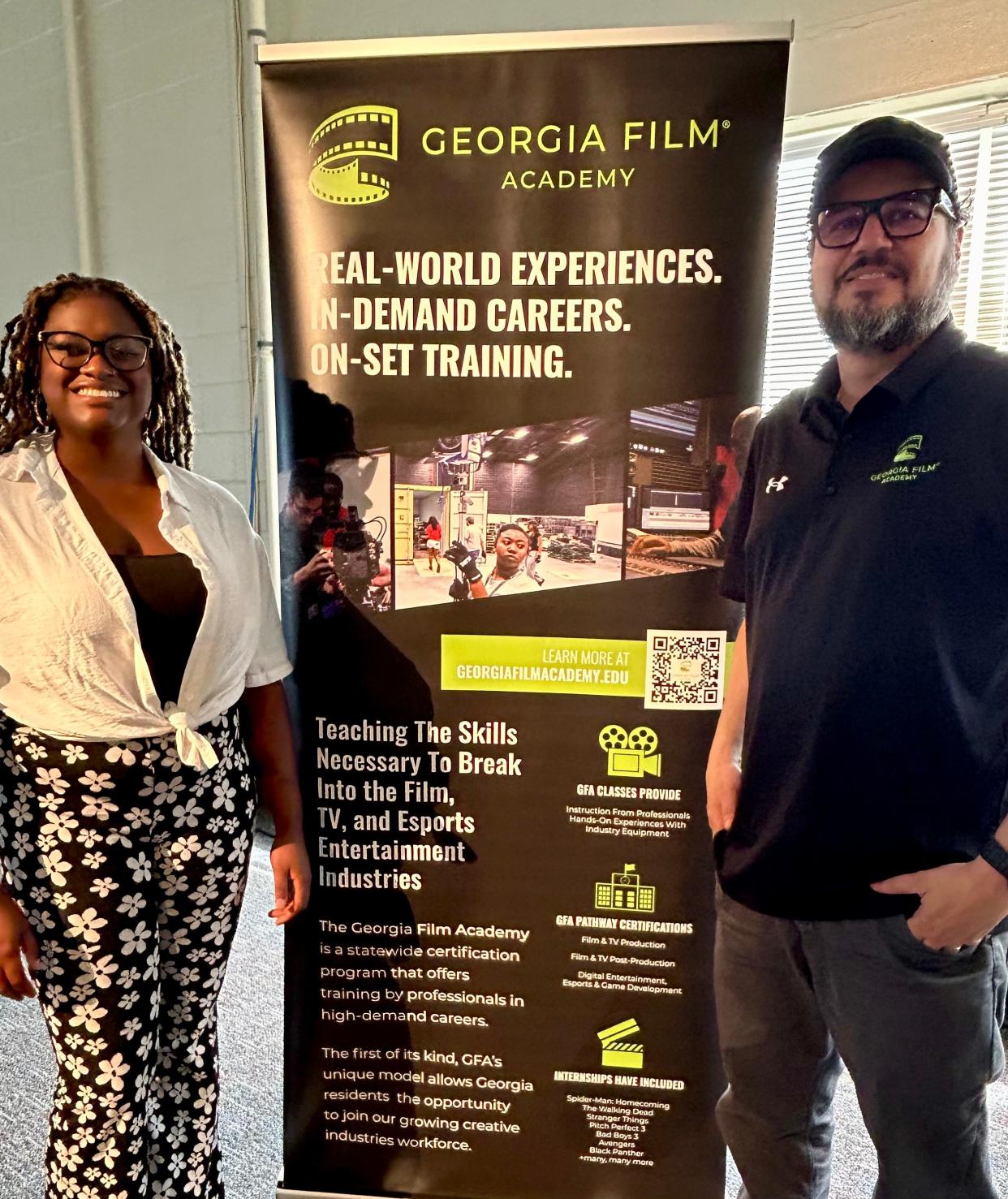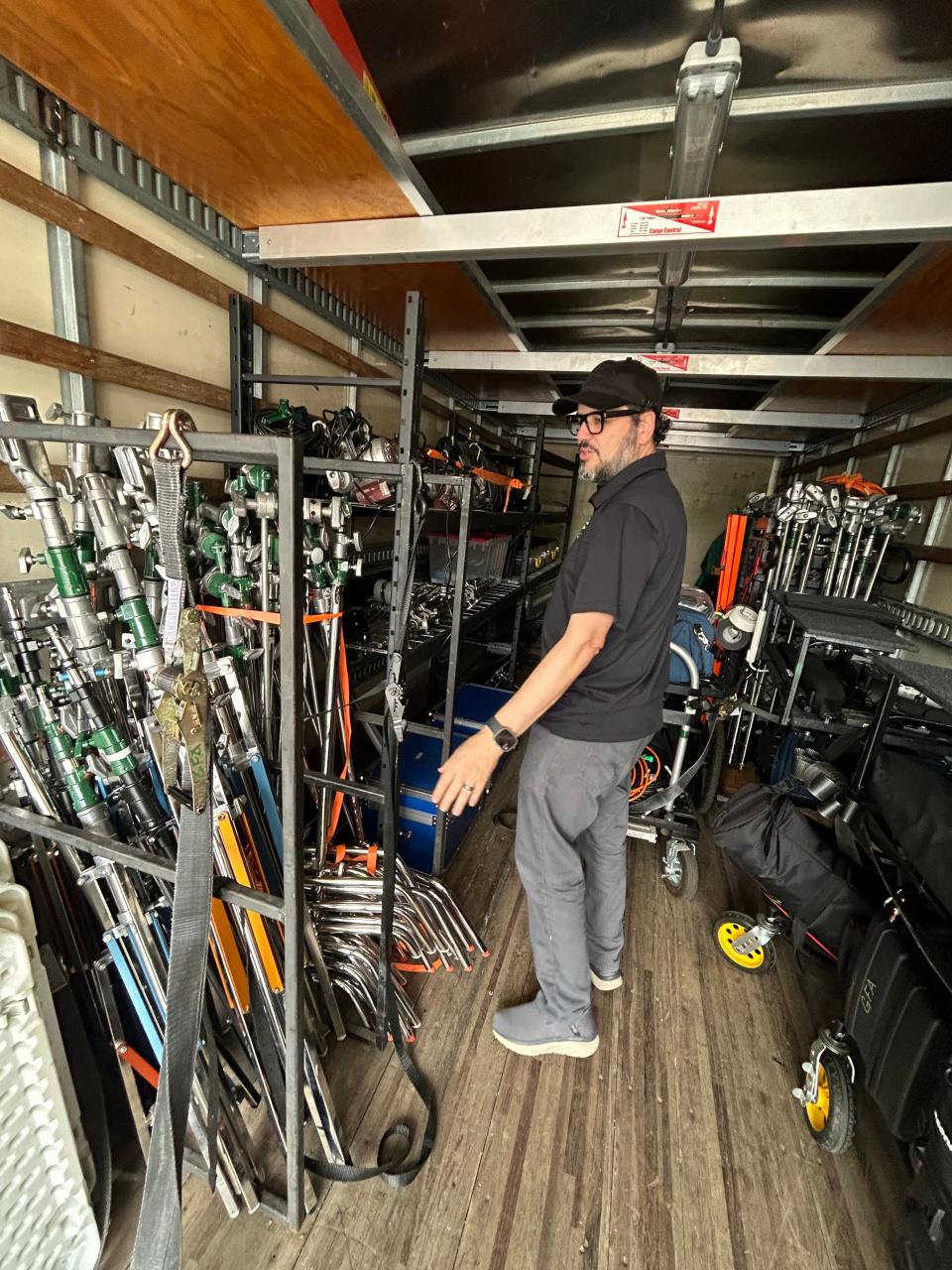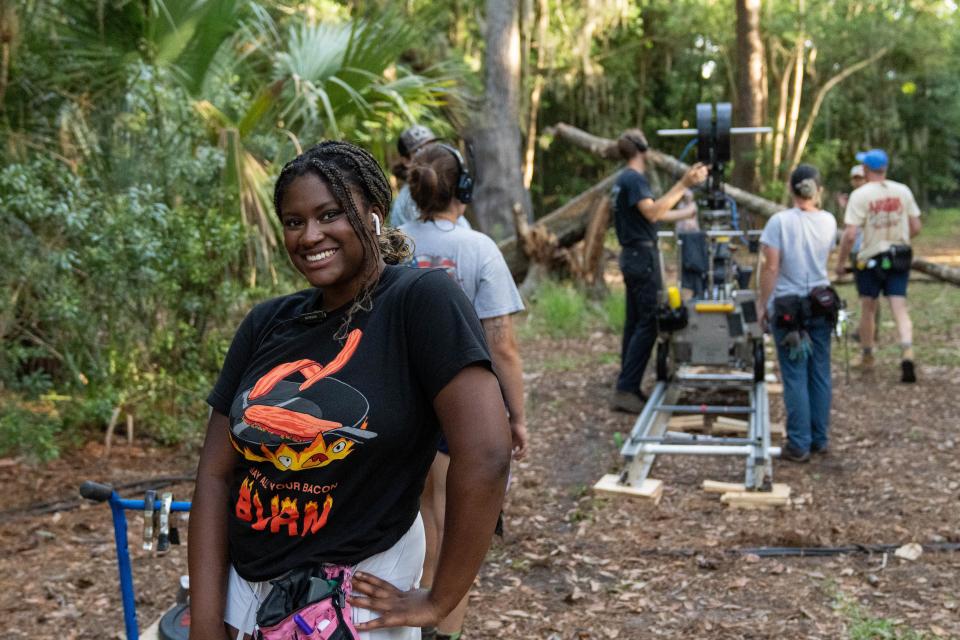Georgia Film Academy offers Introduction to Film & TV course in Savannah this summer

For the first time in South Georgia, the Georgia Film Academy (GFA) will offer its GFA 1000 - Introduction to Film & Television Production course over the summer.
GFA’s Instructional South Georgia Region Manager ― and two-time Emmy award winner ― Julio Saldarriaga will be teaching the course. He had previously been an adjunct since 2021, but recently became a full-time instructor. The south region goes from Swainsboro down to Valdosta and everywhere east of those towns to Georgia’s coast.

GFA’s Assistant Vice Chancellor Scott Votaw said in an interview back in November, “We're in this together to really build up rural Georgia and get more opportunities.”
The summer course is part of GFA’s push to reach not only the rural communities in the state, but also the coastal enclaves, particularly Savannah. “It’s the second largest filming area in Georgia outside of Atlanta metro,” Votaw said. He cited new technology that came about during the COVID-19 pandemic as the reason more rural and non-traditional film communities now have access to movie-making opportunities.
Saldarriaga said the summer offering shows GFA’s and the University System of Georgia’s (USG) commitment to the Savannah hub. He noted Savannah’s proximity to local colleges including Savannah State University, Georgia Southern University, Savannah Technical College, Ogeechee Technical College and Coastal Georgia College as major plus. However, he stressed that “this is not just for students. It is for everybody, including somebody that has a small business who wants to learn about the film industry…and tailor it to their business.”
Here's what to know about the program and who might benefit from taking the course.

‘We build a Fortune 500 company’ with every project
Many students who take the traditional 16-week version of GFA 1000 are enrolled in one of GFA’s partner institutions. They typically pursue an undergraduate degree alongside their film industry training. That was alumna Brianna Black’s experience, though she started in the hybrid era as Georgia was coming out of the pandemic. Her key takeaway about the industry is that “literally any skill that you have, there's a job for you…so many jobs that people aren’t even aware of.”
Saldarriaga concurred. “We build a Fortune 500 company every time that we start a project.” He said there are needs for typical roles such as electricians, grips, actors, lighters, directors and camera operators. But he pointed out additional needs for accountants, caterers and even greenery experts. Many of these more obscure roles are sourced from outside the city and state simply because the services are not offered locally. He sees local businesses as able to meet many of these needs if they simply become more aware of the film industry’s scope.
Citing catering as a prime example, he said that many people may think a film production simply calls a restaurant, which then delivers meals. That is not the case, however, due to union regulations that require cast and crew be fed and hydrated appropriately.
Medical and security professionals are also needed on sets as well as commercial driver’s license certified (CDL) folks. Black stressed that, in her experience particularly in the costuming departments for productions, transportation, or “transpo” in film lingo, is one of the most impactful aspects of a production. Another position that requires specially trained individuals is that of the armorer, a role made infamous due to the tragic loss of cinematographer Halyna Hutchins on the set of the movie "Rust," which stars and is produced by Alec Baldwin.
Saldarriaga said this summer offering is particularly unique because “we're trying to push the secondary continuing education aspect.” For the summer eight-week option, applicants do not have to be enrolled in a partner program as Black had been. He encouraged former members of the military community, local business owners, and anyone with unique skills to consider the course as an opportunity to transfer their skills into a new career path.

GFA Film 1000 summer course details
Savannah State University, 3219 College St., will host the eight-week course at the Hubert Technology Complex. The course begins on May 21 and runs through July 18. Interested applicants have until May 20 to apply.
Classes will meet on Tuesdays and Thursdays from 10 a.m. to 4 p.m. Saldarriaga said the class typically takes an hour lunch break. There is a $750 fee for the course, which does not include meals, so students will need to bring their own food or purchase it elsewhere, either on or off campus.
Saldarriaga said the courses cover a broad overview of film set roles, terms and hierarchy. By the end of the first class, he said students will learn proper “three-point lighting, learn some basic stuff about how the camera captures the light and interacts with the light, and how you modify the light.” He joked that at the very least students will leave the course knowing how to better produce their video blog.
He has the course designed so that students set up the classroom space as if they are preparing a set for shooting a scene, so students will gain practical on-set experience, as well.
The only requirement for applicants is that they are at least 18 years of age. For any questions, interested parties are encouraged to reach out to GFA’s Academic Coordinator Emma Smith at emma.smith@usg.edu.
Joseph Schwartzburt is the education and workforce development reporter for the Savannah Morning News. You can reach him at JSchwartzburt@gannett.com.
This article originally appeared on Savannah Morning News: Georgia Film Academy offers Intro to Film & TV course in Savannah

